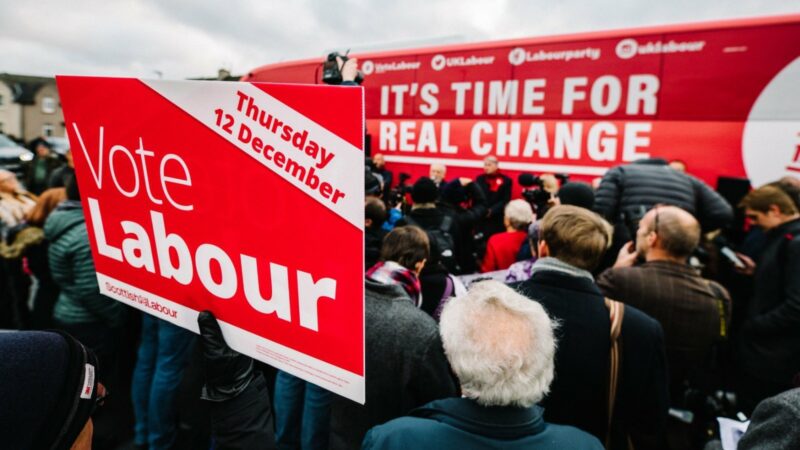
“Labour is on your side,” Jeremy Corbyn will declare in Birmingham this morning when he launches the new manifesto pitched as the “most radical and ambitious plan to transform our country in decades”. While emphasising that Labour’s fresh policy offers are bold – aiming to “deliver real change for the many, and not the few” – the leader will go to great lengths to pre-empt criticism. “The people own the Labour Party. That’s why the billionaires attack us,” he is set to argue. This is a fight between “the political establishment” and the rest of us, who quite reasonably would like things to be fairer and for politicians not to be all the same. That’s how Labour wants this election to be framed.
We’ve had weeks of almost daily policy announcements that involve forward-thinking, challenging timescales – and huge amounts of spending. Under a Labour government, parts of the Treasury would be set up in the North. Every adult would be entitled to free education for six years. The NHS crisis would end thanks to a £26bn “rescue plan”. Average working hours would go down to 32 a week, and that would apply to NHS staff. Gender pay gap? Closed by 2030. We’d see solar panels installed in 2,000 public spaces. 320,000 climate apprenticeships would be created. Where there are no bus services, councils would be empowered to develop them. A guard on every train. And plenty of others were unveiled at conference in September.
Two key policy areas are being highlighted by the party today: housing and green jobs. Labour in power would “kick-start a housing revolution” with a promise to build 100,000 council homes a year by the end of its first term, plus 50,000 genuinely affordable homes (replacing the pathetic Tory definition with one linked to local incomes). This confirmation means the party has adopted a central tenet of the radical housing motion passed at conference. And a Labour government, as part of its ‘green industrial revolution’, would create one million jobs – rebooting British industry, tackling the climate crisis and addressing wealth inequality all at the same time.
The main objections to Labour’s radical programme are based on deliverability. This in itself represents a huge shift: Tory spending pledges mean there is little questioning of whether there is a need for more state intervention. Corbyn’s anti-austerity leadership has changed the parameters of the political debate. What Labour frontbenchers could communicate much more powerfully, if I may say so, is that the level of ambition in the new manifesto is not optional – it is urgently necessary.
Accused of being unrealistic on better pay, or a 2030 decarbonisation target, or more council housebuilding than at any time since Clement Attlee? The answer is that there is no alternative to this course of action. The country is crying out for these changes, and will fall behind on every measure if it doesn’t get to grips with the crises in every area of life that are currently swallowing up talent, destroying lives and wrecking the planet.
Sign up to LabourList’s morning email for everything Labour, every weekday morning.



More from LabourList
‘Why solidarity with Ukraine still matters’
‘Ukraine is Europe’s frontier – and Labour must stay resolute in its defence’
Vast majority of Labour members back defence spending boost and NATO membership – poll